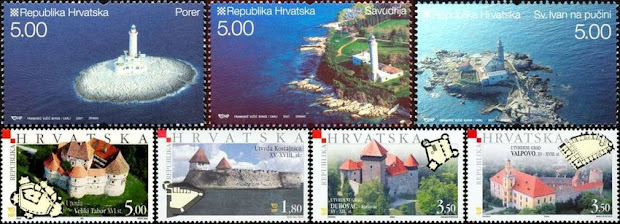A certain book in the flood of publications about the violent breakup of Yugoslavia carries the title: A Paper House. The Ending of Yugoslavia, written by Marc Thompson. One could equally say that paper serves to build a nation. Countries that gained independence often establish airlines, build prestigious infrastructural objects and publish encyclopedias. Croatia is no different in that respect. In a time in which even renowned encyclopedias, such as Britannica and Brockhaus, struggle to survive, the Croatian Lexicographic Institute Miroslav Krleža (LZMK) annually publishes a volume of the Hrvatska enciklopedija (Croatian encyclopedia). The encyclopedia will consist of eleven volumes. The tenth volume was published this summer, so the series should be complete in a year or so. Notwithstanding its name, the Hrvatska enciklopedija is a general encyclopedia, although it pays more attention to Croatian subjects than, say, Britannica does to British.
Croatia has an unfortunate history when it comes to encyclopedias. The first big encyclopedic project, led by Mate Ujević, was interrupted by the Second World War and the subsequent victory of the partisans. In Tito's Yugoslavia the LZMK needed almost twenty years (1955-1971) to publish the Enciklopedija Jugoslavije (Encyclopedia of Yugoslavia). It is still the only complete encyclopedia on Yugoslavia, because its second edition (1980-1990) was halted by the war of the 1990s. Of the twelve planned volumes only six were published.
Croatia has an unfortunate history when it comes to encyclopedias. The first big encyclopedic project, led by Mate Ujević, was interrupted by the Second World War and the subsequent victory of the partisans. In Tito's Yugoslavia the LZMK needed almost twenty years (1955-1971) to publish the Enciklopedija Jugoslavije (Encyclopedia of Yugoslavia). It is still the only complete encyclopedia on Yugoslavia, because its second edition (1980-1990) was halted by the war of the 1990s. Of the twelve planned volumes only six were published.






